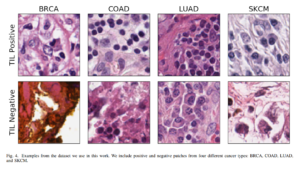In this bimonthly feature, HPCwire highlights newly published research in the high-performance computing community and related domains. From parallel programming to exascale to quantum computing, the details are here.
Understanding how diseases spread is crucial to developing strategies for preventing and controlling them – and computer-simulated models of disease spread can be important tools in this process. In this paper from Charles Sturt University in Australia, the authors discuss how a combination of high-performance computing and social network analysis can be used to optimize these disease spread simulations.
Authors: Victoria Brookes, Michael P. Ward, K. VanderWaal, Emily Hudson and Salome Durr.
 Evolving HPC and application design for exascale platforms at NASA
Evolving HPC and application design for exascale platforms at NASA
As global weather models have evolved, their computing demands have dramatically increased. NASA’s Goddard Earth Observing System has been stressing its HPC capabilities, leading to the redesign of key elements of the system in preparation for the exascale era. In this paper, NASA researchers discuss these redesigns, which include new, more efficient algorithms, artificial intelligence measures and redesigned data-centric, cloud-based storage.
Authors: Bill Putman, Tom Clune, Dan Duffy and Tsengdar Lee.
Building a hexapod robot based on HPC
HPC is important for solving complex problems in robot simulation and control. This article – written by a team from the Harbin Institute of Technology and Leju Robotics in China – outlines the “flexible hexapod robot with arc-shaped legs that has the ability to move fast and agilely,” built using high-performance computing. They used a virtual prototype simulation and physical prototypes, eventually developing a gait with a traveling speed of 1.2 m/s.
Authors: Xiaokun Leng, Songhao Piao, Lin Chang, Zhicheng He and Zheng Zhu.
 Using exascale deep learning to accelerate cancer research
Using exascale deep learning to accelerate cancer research
Deep learning, increasingly, is considered a crucial avenue for diagnosing and treating cancer. These authors (from Stony Brook University and Oak Ridge National Laboratory) explain how neural network architectures can be automatically generated to increase accuracy and prediction speed. Using an HPC-enabled software stack, they generate a neural network with state-of-the-art accuracy working using a cancer pathology dataset – which operated with 16 times the speed of comparably accurate tools.
Authors: Robert M. Patton, J. Travis Johnston, Steven R. Young, Catherine D. Schuman, Thomas E. Potok, Derek C. Rose, Seung-Hwan Lim, Junghoon Chae, Le Hou, Shahira Abousamra, Dimitris Samaras and Joel Saltz.
Developing visualization for extreme-scale scientific computation
This paper – written by a team from the University of Oregon – discusses the XVis project, which aims to provide “the necessary research and infrastructure for scientific discovery” in the high-performance scientific computing ecosystem by addressing emerging processor technology, integration, usability and proxy analysis. Specifically, the authors discuss the XVis project’s work to prepare scientific visualization tools for the exascale era.
Authors: Ken Moreland, David Pugmire, David Rogers, Hank Childs, Kwan-Liu Ma and Berk Geveci.
 Enabling HPC performance monitoring via job-specific analysis
Enabling HPC performance monitoring via job-specific analysis
Performance monitoring can have major impacts on optimization and job scheduling. This paper, written by a duo from the Max Planck Computing and Data Facility (MPCDF) in Germany, describes the design and implementation of an HPC performance monitoring system that continuously monitors performance metrics of all the jobs on the HPC systems at the MPCDF. The authors describe the practical experiences and benefits of their solutions.
Authors: Luka Stanisic and Klaus Reuter
Using HPC and spatial data for smart cities and urban governance
Air pollution in India was responsible for around 1.8 million deaths in the year 2015 alone. These authors (from the BMS Institute of Technology and Management and the R.V. College of Engineering in India) describe an innovative integrated framework utilizing HPC for capturing environmental data using a smart air monitoring system, allowing policymakers to take preventive measures to improve urban air quality.
Authors: G.S. Nagaraja, Anjan K. Koundinya, G. Thippeswamy and Vinay V. Hegde.
Do you know about research that should be included in next month’s list? If so, send us an email at [email protected]. We look forward to hearing from you.




























































